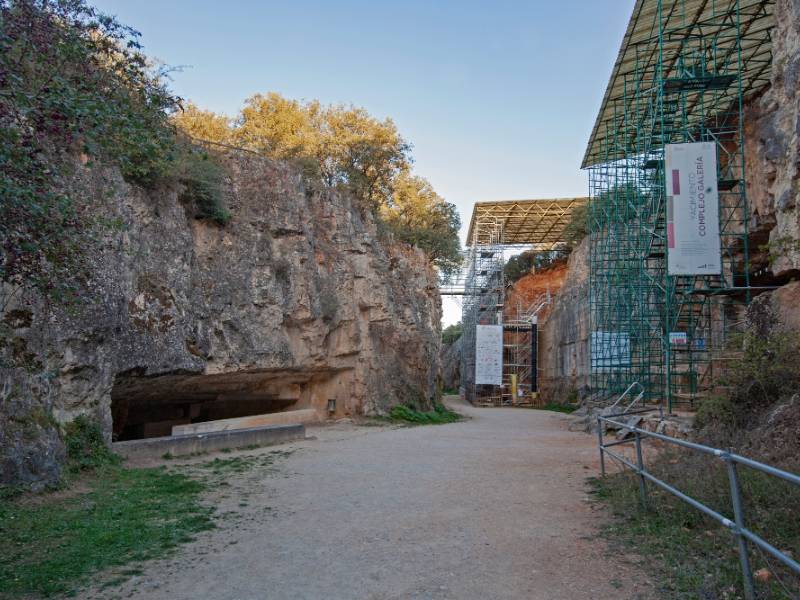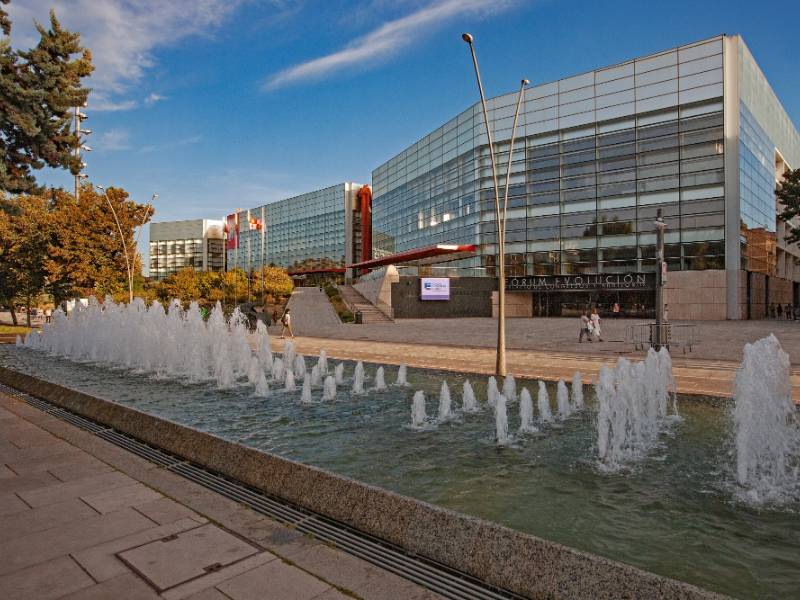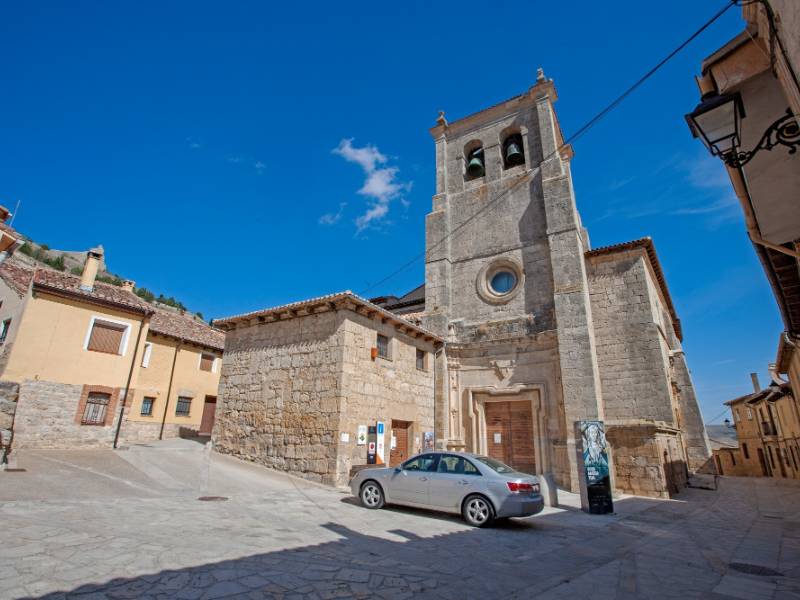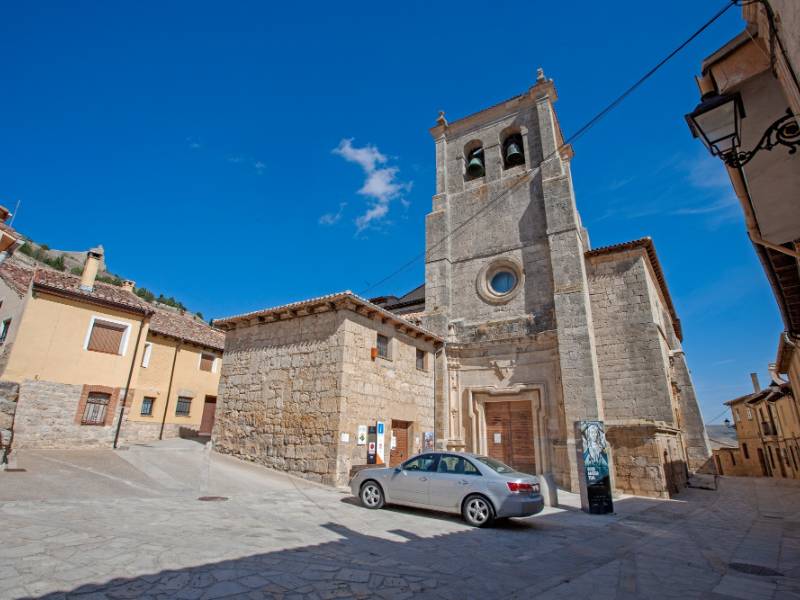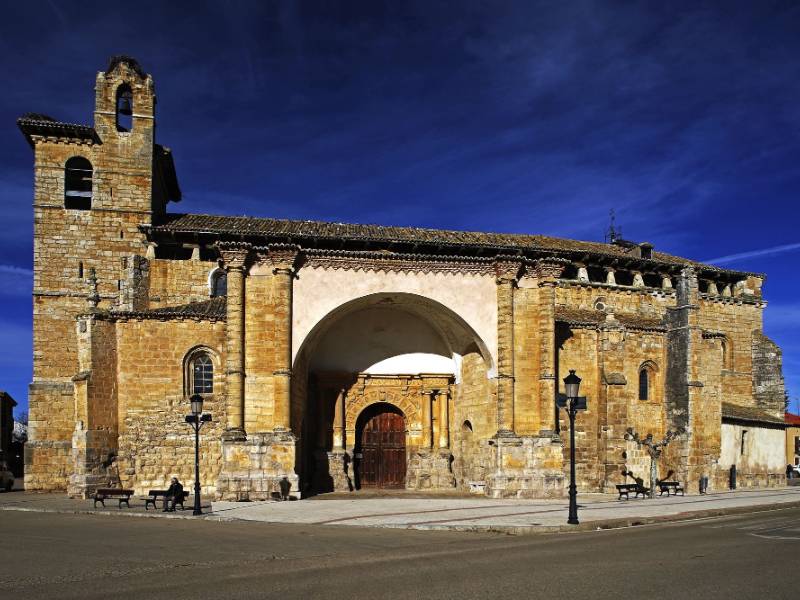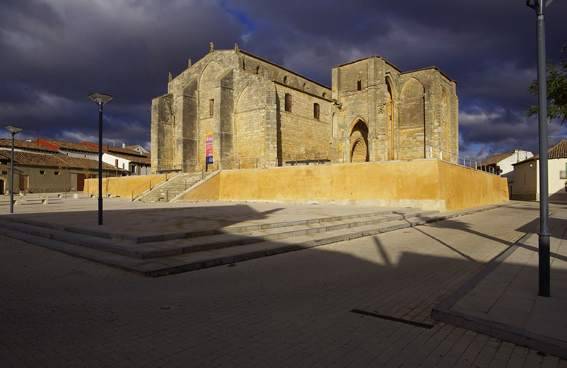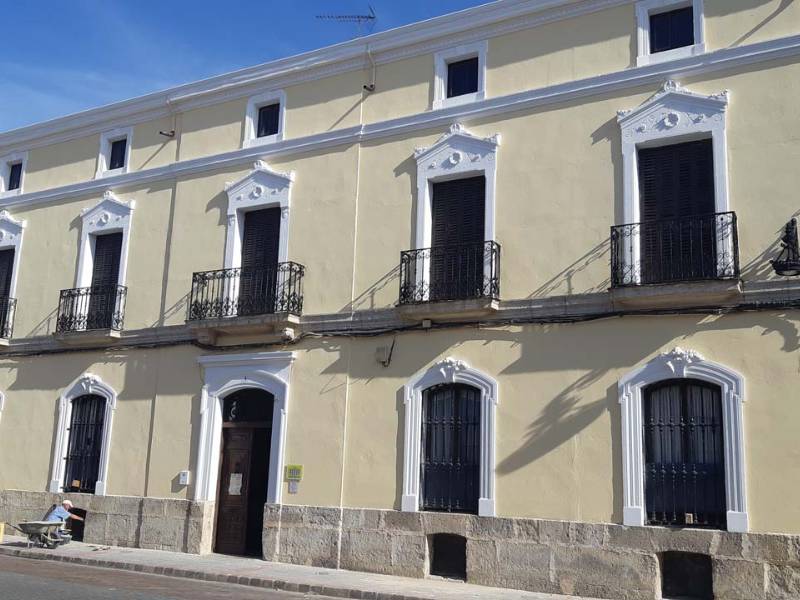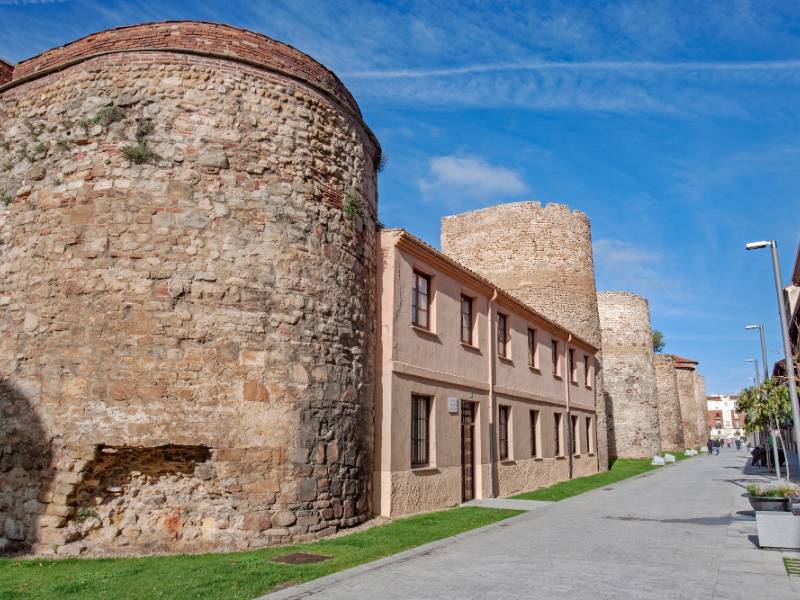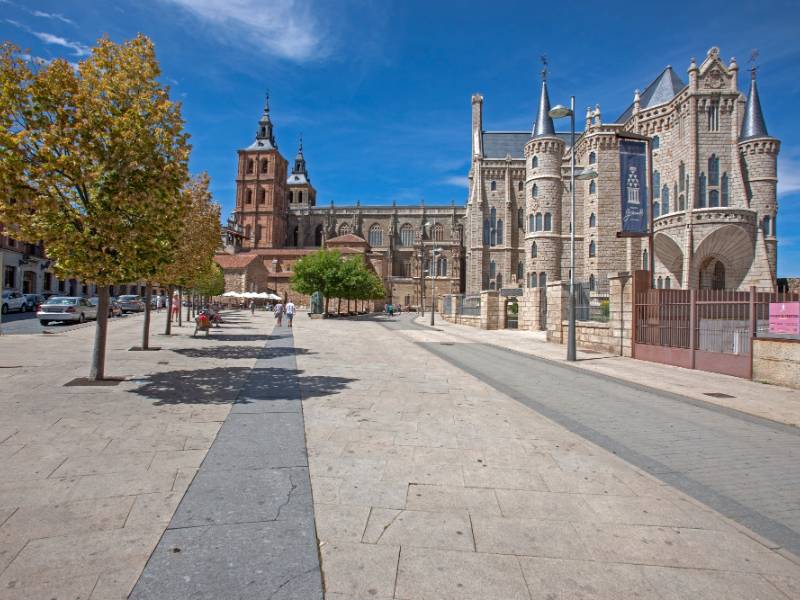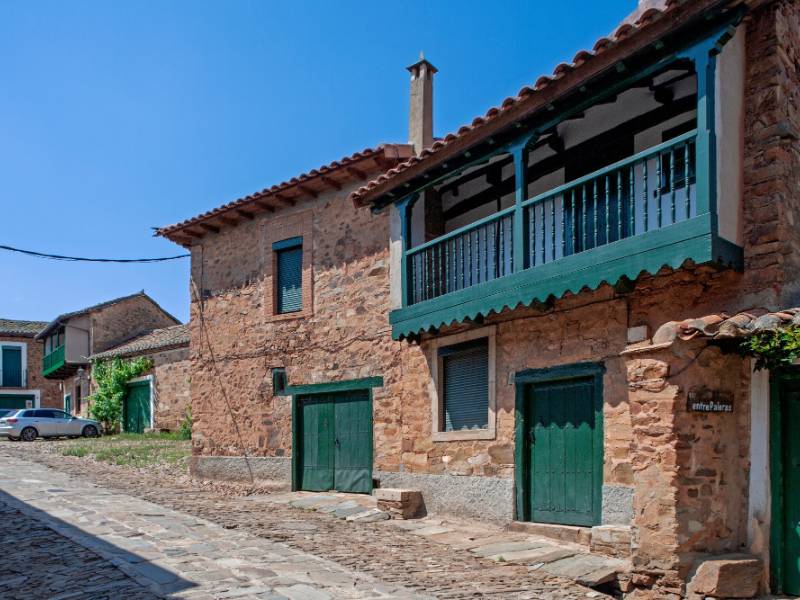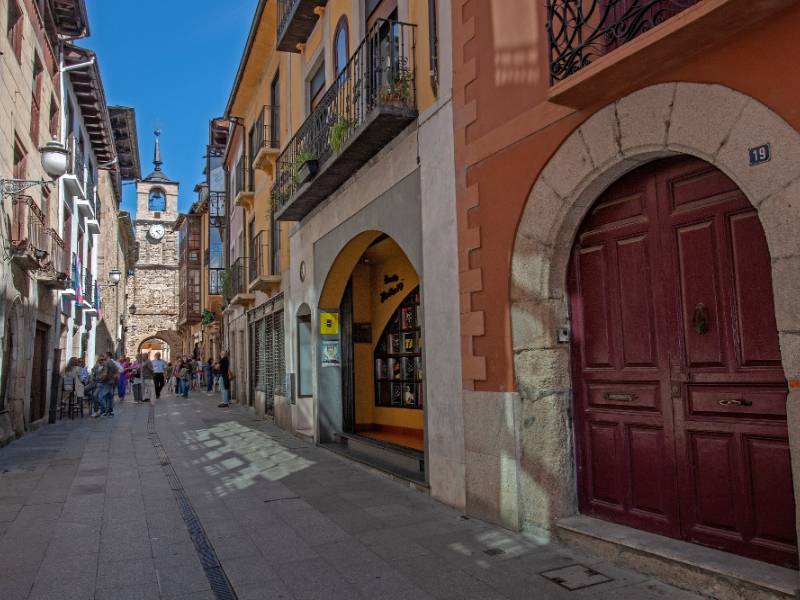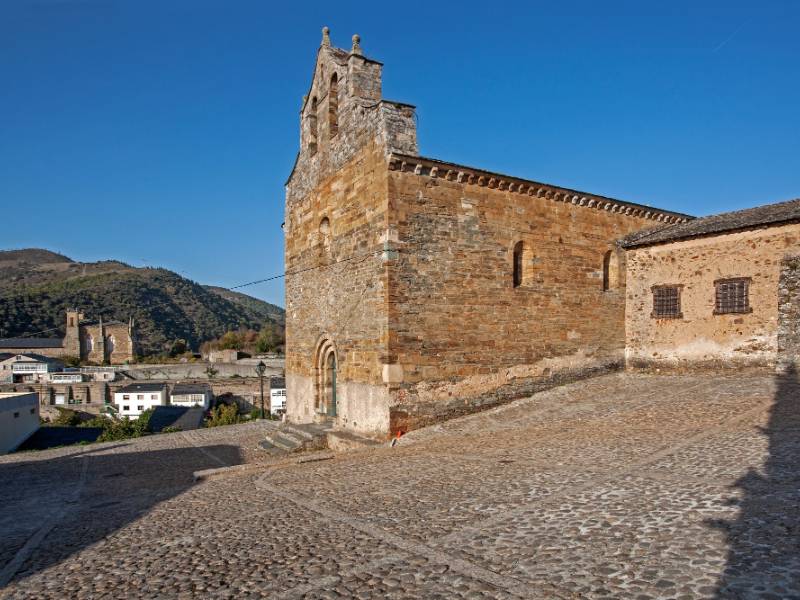Route 7 Camino de Santiago - Astorga
- Previous
- Following
Astorga, the Roman Asturica Augusta, is full of history, accumulated through its 2,000 years of existence. An important artistic and historic centre, the destination of the Roman way that started in Emerita Augusta, today's Mérida. Besides a prominent Roman centre, whose remnants are integrated in the modern structures, Astorga was also an important milestone along the Camino de Santiago in the Middle Ages. Also, in it converge the two main tourist routes of the area: the Vía de la Plata and, of course, the Camino de Santiago, also known as the Ruta Jacobea.
Astorga continues to be a Diocese and preserves one of the most beautiful cathedrals in Castilla y León and an Episcopal Palace by Gaudí, which seems fresh out of a fairy tale.
Reference to content
What to see?
 Aedes AugustiMore information
Aedes AugustiMore informationTemple intended for the imperial cult and dedicated to the memory of Emperor Augustus. It is a Roman concrete building with marble floor and double colored geometric motifs, located on a hill in the old...
 Minor Hot SpringsMore information
Minor Hot SpringsMore informationPublic building intended for the bathroom, where users followed a pre-established itinerary through a series of rooms with different temperatures: frigidarium (cold bath), tepidarium (warm room) and caldarium...
 The Domus of the Bear and Birds MosaicMore information
The Domus of the Bear and Birds MosaicMore informationIn the vicinity of the forum and in one of the sunniest areas of the city, the remains of a house that must have belonged to a family of a certain economic level are preserved, as seems to indicate the...
 The Forum (South Portico)More information
The Forum (South Portico)More informationThe Astúrica forum is located in the highest area of the city and is made up of a double colonnaded portico that surrounds it on its north, south and west sides. On the eastern flank stands the basilica,...
 The Pit CampMore information
The Pit CampMore informationOn the hill of the current town of Astorga has been located the so-called 'trench of the camp', a vestige of the defensive system of a Roman military camp founded in the Cantabrian Wars (29-19 BC) and...
 Cathedral of AstorgaMore information
Cathedral of AstorgaMore informationThis is one of the most representative buildings of the maragata capital, a noble, loyal and bimillennial town in the province of León, a crossroads and melting pot of cultures. It is part of the dioceses...
 Episcopal Palace / Palace of GaudiMore information
Episcopal Palace / Palace of GaudiMore informationProjected by Antonio Gaudí after the fire that destroyed the former Episcopal palace of Astorga in 1886, it is a neo-Gothic modernist building that brings together forms typical of a stately mansion, a...
 Roman sewersMore information
Roman sewersMore informationThe sanitation network of the old Astúrica is well known and presents a good state of conservation, in fact, some of its branches are still in use. The Roman Route includes the walk inside a sewer, belonging...
 The CuriaMore information
The CuriaMore informationRectangular room whose head ends in an apse. It is located occupying a central position in the portico that closes the forum from the west and, although it has traditionally been interpreted as a place...


